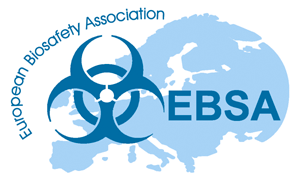Past EBSA courses
-
11 June 2012
EBSA15 - Course I. Biorisk management systems and the implementation of CWA 15793 - a practical approach (full day)
Read moreRecent breaches of biosafety and biosecurity have emphasised that systematic management failure is normally the root cause of accidents and incidents with biological agents and toxins. Adopting the CWA 15793 can help organisations manage these risks.
-
11 June 2012
EBSA15 - Course H. Auditing - Beyond the basics (full day)
Read moreThis 1-day course builds on the basic auditing workshop which has been delivered in connection with previous EBSA conferences although prior participation in that course is not essential. Participants will be assigned to groups which will be provided with a scenario from which they will be asked to elaborate pre-audit questionnaires, prepare introductory and closing sessions and draft a management summary of an audit report.
-
11 June 2012
EBSA15 - Course G. Biological waste management and decontamination (full day)
Read moreThis one day course will give understanding of different aspects of decontamination. An interactive workshop combining theory and practical examples covering decon methods for micro-organisms of all risk groups, with particular focus on level 3, suitable for laboratory managers and biosafety officers in charge of microbiological labs or animal houses.
-
11 June 2012
EBSA15 - Course F. Working safely in a biosafety cabinet
Read moreThe course will consist of a short theoretical introduction to design, maintenance, calibration and working.
In this course students will work according to a 'practical approach';
-
11 June 2012
EBSA15 - Course E. Personal protective equipment (half day)
Read moreThis course will give an overview of the use of personal protective equipment (PPE) in BSL2 and BSL3 laboratories. But will very much be focused on practical experience with different sorts of PPE. Thecourse will concentrate on how to choose adequate PPE (gloves, safety glasses, lab coats, respiratory protection, etc.) for different purposes. This day we will give the trainees an opportunity to try and to test hands-on various examples of PPE under the supervision of experienced trainers. We will also go through how to perform fit-testing of respirators.
-
11 June 2012
EBSA15 - Course D. Biosafety aspects and management of the design and construction of biocontainment facilities (full day)
Read moreThis course will present the concepts, envisage technical options and examine the safety and project management issues related to planning of the construction of BSL2 and BSL3 facilities. The approach, starting from establishing the users' requirements, will emphasize the importance of an initial risk assessment, needed to define the scope and concept of the project.
-
11 June 2012
EBSA15 - Course B. Developing and sustaining behavioral-based safety programmes (full day)
Read moreYou don't teach a child how to swim with PowerPoint, so why do we spend so much time training people with PowerPoint? We must acknowledge that training does not end with the transfer of a standard operating procedure.
-
11 June 2012
EBSA15 - Course A. Emergency Preparedness and Contingency Planning (full day)
Read moreFrom minor lab mishaps to large accidents, the biosafety professional has a central role in minimizing unwanted effects of biological agents when normal biosafety or biosecurity operational controls fail.
-
12 April 2011
EBSA14 - Course G. Current laboratory biosecurity procedures
Read moreThis short course will introduce the issues and practical approaches to developing and influencing an effective biosecurity programme.
The course will introduce delegates to the issues required to develop an effective biosecurity programme at the institute level. The course includes practical and theoretical aspects to adopt and to determine risk.
